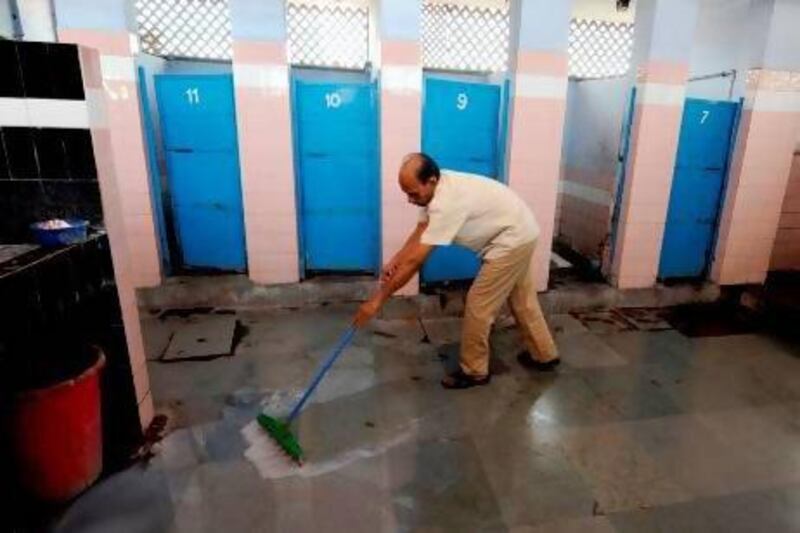NEW DELHI // Chaya Sawant has to put up a fight every time she wants to use a public toilet in Mumbai.
Mrs Sawant, 33, a teacher, has to pay to use a free facility.
The attendants make up arbitrary charges, ranging anywhere from three to five rupees (Dh0.15 -0.31), she said.
"You cannot imagine the sorts of things they say to us when we ask why they are charging us to use a public service," said Mrs Sawant.
"They tell us women are dirty, that they are not paid to clean up after us."
In a city with more than 18 million residents, there are only 2,847 municipal public toilets for men, according to information obtained from Mumbai's municipal corporation. For women, there is none.
To address this glaring omission, 35 non-profit organisations under the umbrella of the Committee of Resource Organisations (Coro) created the Right to Pee campaign, which aims to put pressure on the municipality to build women's toilets.
Over the past 18 months, the group has sought information on the financing of the city's town planning projects by filing petitions under the Right to Information Act.
It has led public-awareness programmes in slums and bus and railway stations, and collected signatures from thousands of women who said they would like to see municipal facilities built exclusively for their use.
While there are common-use toilets for women in slums, which are run by the residents' organisations, there are no separate facilities for women in public places such as bus or railway stations, or even on the streets.
"When you think about it, this is a biological need. The fact that half the population is being denied a need that is a basic human right is wrong," said Supriya Sonar, a member of Coro.
"You can say that it is our constitutional right; the right to live with dignity is being violated."
An estimated 94 per cent of women and girls in Mumbai have to leave their homes every day for work or education, according to Ms Sonar.
"They have not updated their mindset about women, that we step out of our homes to work every day, go to schools and colleges," she said. "When the government thinks about sanitation, they don't think about women. The allusion is that we all stay at home."
As a result, women have taken up extreme measures to avoid the need to use a public toilet. They drink less water, or carry plastic bags to relieve themselves, said Dr Vibhuti Patel, director of the Centre for the Study of Social Exclusion and Inclusive Policy in Mumbai.
"The complications from this sort of behaviour is devastating," she said.
Delaying urination can lead to complications in women that range from the formation of cysts in the reproductive organs, to urinary tract infections. Long-term complications include incontinence and cervical or uterine cancer.
"It is not just public spaces, but also schools. Girls drop out of school because there is no running water in the toilets, or boys have taken them over," said Dr Patel.
"We have talked about this informally for 30 years, about the need for sanitation for working women. One hopes that the apathy of the system will change."
Last year, despite being armed with more than 7,000 signatures, Coro received no response from civic authorities when asked to explain the situation, said Ms Sonar.
This year, the campaign targeted female members of civic groups, lobbying them to raise the issue before the municipal budgets for the city were decided.
The campaign seems to be bearing fruit.
Last month the municipalities that govern Mumbai and its suburbs agreed to allocate up to 7.5 million rupees to build the first of 25 women-only toilets.
As a whole, India faces an acute shortage of toilets - both public and private. More than half the population, 68 per cent, does not have access to a toilet, according to the World Health Organisation.
Following the success of her group's efforts in Mumbai, Ms Sonar said they have been talking to non-profit groups across India who asked for assistance to put pressure on authorities.
"This situation is everywhere. It is far worse in other cities," said Ms Sonar. "We are at a stage now where we feel we can connect all over India."





